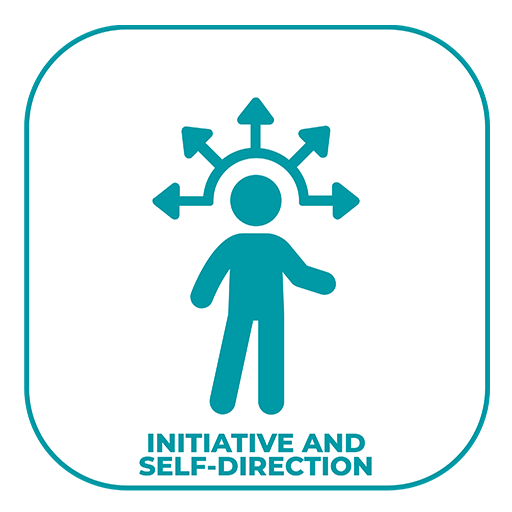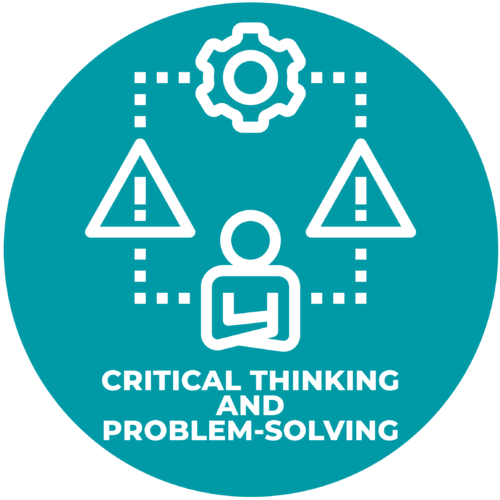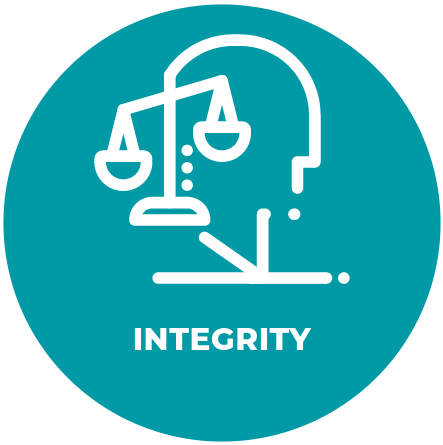Having initiative and self-direction skills means taking proactive steps and being self-motivated in pursuing goals, tasks, and responsibilities. Individuals with these skills demonstrate a sense of ownership and accountability in their work and personal endeavors. They take the initiative to identify and seize opportunities, make decisions, and solve problems without relying solely on external guidance. Initiative and self-direction skills involve setting goals, planning and organizing tasks, and managing time effectively. Individuals with these skills are self-motivated, persistent, and willing to take risks and embrace challenges. They demonstrate adaptability, resourcefulness, and the ability to work independently, seeking out and utilizing available resources to achieve desired outcomes. Initiative and self-direction skills are essential for personal and professional growth, fostering a proactive mindset and navigating complex situations with confidence and autonomy.
“The best way to predict the future is to create it.”
Peter Drucker
- Initiative and Self-Direction Skills
- Goal Setting: The ability to define clear, specific, and achievable goals provides direction and motivation for taking initiative.
- Planning and Organization: Effective planning and organizational skills help individuals outline steps toward their goals and manage their time and resources efficiently.
- Time Management: Prioritizing tasks and managing time effectively ensures that efforts are focused on activities that contribute to personal and professional development.
- Decision-Making: The skill of making informed decisions and taking responsibility for the outcomes is essential for self-direction.
- Adaptability: Being adaptable in the face of challenges and changes allows individuals to navigate uncertainties and stay on course toward their goals.
- Self-Motivation: The ability to generate and sustain motivation internally is crucial for initiating tasks and staying committed to long-term objectives.
- Resilience: Developing resilience helps individuals bounce back from setbacks, learn from failures, and maintain a positive mindset in the face of challenges.
- Risk-Taking: Being willing to take calculated risks fosters a mindset of exploration and innovation, key elements of initiative.
- Self-Reflection: Regularly reflecting on one’s strengths, weaknesses, and progress facilitates continuous improvement and enhances self-awareness.
- Assertiveness: Being assertive involves expressing one’s thoughts, needs, and desires clearly and confidently, contributing to effective self-direction.
- Communication Skills: Effective communication is essential for conveying ideas, collaborating with others, and seeking support when needed.
- Problem-Solving: Developing strong problem-solving skills enables individuals to navigate challenges and find creative solutions independently.
- Continuous Learning: Embracing a mindset of lifelong learning encourages personal growth and the acquisition of new skills, fostering self-direction.
- Networking: Building and maintaining a network of connections provides access to resources, support, and opportunities that contribute to individual growth.
- Initiative: The ability to take the lead, show initiative, and start projects or tasks independently is a fundamental aspect of self-direction.
- Financial Literacy: Understanding financial concepts and managing resources wisely contributes to autonomy and the ability to pursue personal and financial goals.
- Emotional Intelligence: Being aware of and managing one’s own emotions and understanding others’ emotions fosters effective interpersonal relationships and self-direction.
- Vision and Purpose: Clarifying personal values, vision, and purpose provides a guiding framework for setting and pursuing meaningful goals.
Gen Z and Millennials Who Demonstrate Great Initiative and Self-Direction Skills
“You don’t have to be great to start, but you have to start to be great.”
Zig Ziglar

Emma Gonzales
Emma Gonzalez has demonstrated significant initiative and self-direction skills through her activism, particularly in the aftermath of the Stoneman Douglas High School shooting in 2018. Following the tragic shooting, Emma took the initiative to become a vocal advocate for gun control. She co-founded the “Never Again MSD” advocacy group with her peers, showing leadership and self-direction in addressing a critical societal issue. Emma played a pivotal role in organizing the March for Our Lives movement. This nationwide protest advocated for stricter gun control laws and increased safety measures in schools. Her initiative in mobilizing a large-scale event demonstrated effective self-direction in achieving a specific goal by leveraging social media platforms to share information, mobilize supporters, and keep the movement’s momentum alive. Emma actively engaged with policymakers, calling for specific legislative changes related to gun control, and demonstrated a strategic and goal-oriented approach, showcasing her initiative to effect tangible policy changes. Emma Gonzalez’s initiative and self-direction skills are evident in her unwavering commitment to addressing gun violence and advocating for meaningful change and impactful activism by taking charge, mobilizing others, and actively participating in the advocacy process. Here is a video interview with Emma Gonzales from Variety Magazine.

Brian Wong
Brian Wong is a Canadian entrepreneur who co-founded Kiip, a mobile advertising platform, when he was just 19 years old. His initiative in the startup world and digital marketing demonstrates self-direction in the business and technology sectors. Instead of traditional banner ads, Kiip focused on a rewards-based model, offering users real-world rewards for in-app achievements. Wong’s ability to adapt to changing market trends and continuously innovate Kiip’s offerings demonstrates an ongoing self-directed initiative to stay at the forefront of the advertising technology landscape. Wong demonstrated self-direction in navigating the complex world of startups, from securing initial funding to building partnerships with major brands. His involvement in community events, mentorship programs, and networking initiatives reflects an initiative to give back and contribute to the growth of the broader ecosystem. Wong’s resilience and ability to overcome obstacles highlight a determined self-direction to pursue the long-term vision by staying informed about industry trends, technological advancements, and business strategies, showcases a proactive approach to personal and professional development from the inception of the company to its ongoing growth and impact in the advertising technology sector. Here is an interview by Valleygirl on how he designed Kiip.

Name
Name, description

